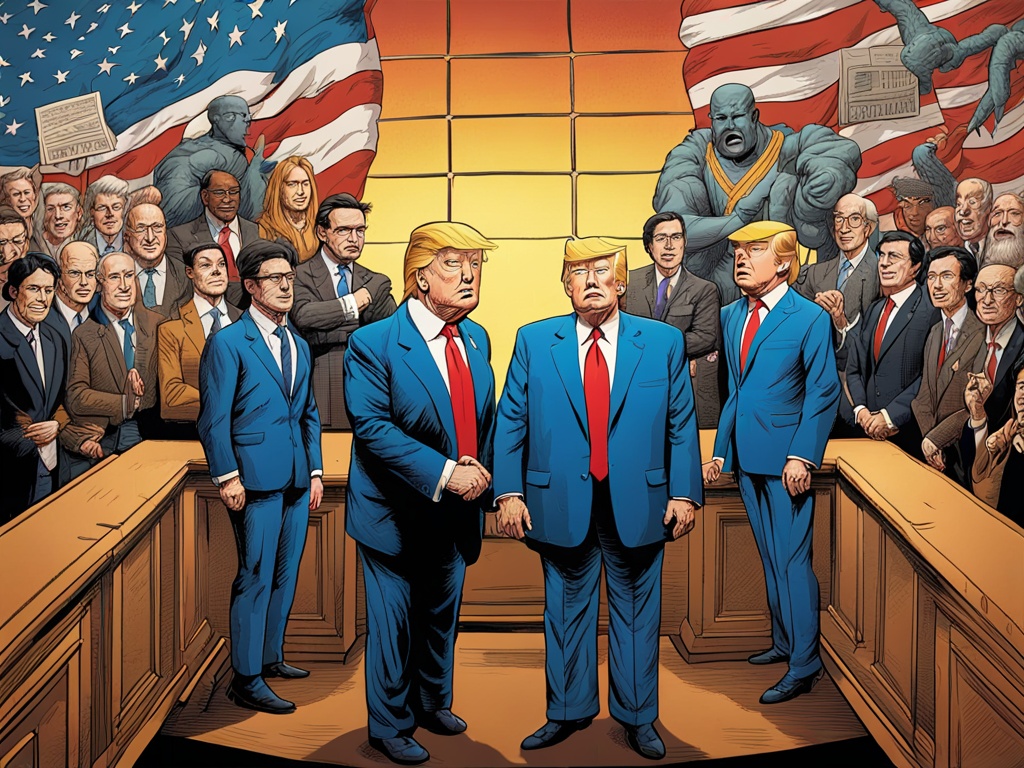Trump Challenges Major Banks on Conservative Client Treatment 😡
During a recent gathering at the World Economic Forum in Davos, President Donald Trump voiced his concerns regarding the treatment of conservative clients by the heads of two of the largest banks in the United States. He specifically targeted Bank of America CEO Brian Moynihan and JPMorgan Chase CEO Jamie Dimon during a video address, reigniting a narrative for his upcoming 2024 campaign.
Claims Against Banking Giants 🏦
In his address, Trump asserted, “I hope you start opening your bank to conservatives because many conservatives complain that the banks are not allowing them to do business within the bank, and that included a place called Bank of America.” He expressed dissatisfaction with how these institutions treat conservative clients, urging both CEOs to reconsider their policies.
Addressing Moynihan directly, Trump articulated: “You and Jamie and everybody, I hope you’re going to open your banks to conservatives because what you’re doing is wrong.” In response, Moynihan, who was present during the Q-and-A session, did not react immediately to Trump’s allegations.
Bank Responses to Allegations 📄
Both Bank of America and JPMorgan Chase firmly denied the allegations of denying service to conservatives. An official from Bank of America stated, “We serve more than 70 million clients, we welcome conservatives and have no political litmus test.” Meanwhile, a JPMorgan spokesperson claimed, “We have never and would never close an account for political reasons, full stop.” They emphasized adherence to legal standards and highlighted existing challenges posed by the regulatory framework.
The scrutiny of banks intensified following the 2008 financial crisis when regulators demanded that banks offload clients deemed high-risk for activities like money laundering or fraud. As a result, various sectors, including payday lenders and gun dealers, faced account closures often without prior notice.
Recurring Claims of Discrimination 📉
Trump has repeatedly directed his focus toward Bank of America, reiterating claims of political bias against conservatives. His accusations may stem from earlier assertions made by state prosecutors. In a letter last April, Kansas Attorney General Kris Kobach alleged that Bank of America had canceled accounts for “multiple religious groups with mainstream views in the last three years.”
In their response to Kobach, Bank of America explained that accounts may be deactivated for various reasons, including changes in account purpose or failure to provide necessary documentation. They specifically mentioned an account involved in debt collection services as an example of a closure.
Clarifications from Bank of America 🔍
Bank of America emphasized its neutrality in political and religious matters in a statement. They noted, “Religious beliefs or political view-based beliefs are never a factor in any decisions related to our client’s accounts.” They claimed to maintain banking relationships with approximately 120,000 faith-based organizations across the nation.
Furthermore, Bank of America expressed its willingness to collaborate with the Trump administration regarding regulations that could lead to de-banking issues.
Continued Controversy Among Influencers 👥
Allegations of banking discrimination based on political or religious affiliations persist, particularly among Trump’s close associates. In November, influential venture capitalist Marc Andreessen, known for his advisory role to Trump on technology issues, mentioned in a podcast that numerous startup founders had experienced account closures in recent years.
As these discussions unfold, both Bank of America and JPMorgan Chase reported an uptick in their stock values following Trump’s remarks, reflecting a degree of investor confidence in the banking sector.
Impact of Political Climate on Banking Industry 🔄
The evolution of the political landscape has significantly influenced the banking industry, especially in the context of Trump’s presidency. His administration is expected to lead to deregulation efforts that may benefit banks, including potential reductions in capital reserves and easing of stress tests typically imposed on financial institutions.
As discussions around the treatment of conservative clients persist, the banking industry stands at a crucial juncture, navigating between regulatory requirements and the politically charged climate created by prominent public figures.





 By
By
 By
By
 By
By
 By
By
